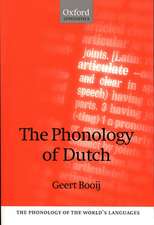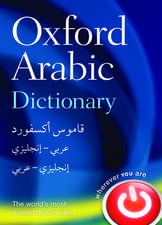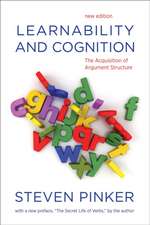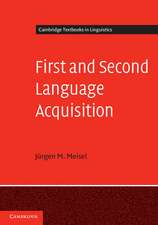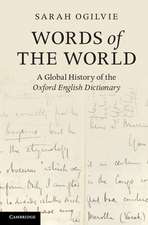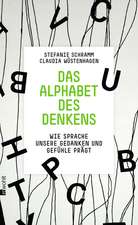Ashgate Critical Essays on Early English Lexicographers: Volume 5: The Eighteenth Century: Ashgate Critical Essays on Early English Lexicographers
Editat de Anne C. McDermotten Limba Engleză Paperback – 14 oct 2024
| Toate formatele și edițiile | Preț | Express |
|---|---|---|
| Paperback (1) | 226.34 lei 6-8 săpt. | |
| Taylor & Francis – 14 oct 2024 | 226.34 lei 6-8 săpt. | |
| Hardback (1) | 1696.62 lei 6-8 săpt. | |
| Taylor & Francis – 18 dec 2012 | 1696.62 lei 6-8 săpt. |
Preț: 226.34 lei
Preț vechi: 256.53 lei
-12% Nou
Puncte Express: 340
Preț estimativ în valută:
43.31€ • 45.34$ • 35.84£
43.31€ • 45.34$ • 35.84£
Carte tipărită la comandă
Livrare economică 05-19 aprilie
Preluare comenzi: 021 569.72.76
Specificații
ISBN-13: 9781032919102
ISBN-10: 1032919108
Pagini: 518
Dimensiuni: 174 x 246 mm
Greutate: 0.96 kg
Ediția:1
Editura: Taylor & Francis
Colecția Routledge
Seria Ashgate Critical Essays on Early English Lexicographers
Locul publicării:Oxford, United Kingdom
ISBN-10: 1032919108
Pagini: 518
Dimensiuni: 174 x 246 mm
Greutate: 0.96 kg
Ediția:1
Editura: Taylor & Francis
Colecția Routledge
Seria Ashgate Critical Essays on Early English Lexicographers
Locul publicării:Oxford, United Kingdom
Public țintă
AcademicNotă biografică
Anne C. McDermott is Senior Lecturer in English at the University of Birmingham, UK.
Recenzii
'Anne C. McDermott does a masterful job of guiding readers through the complicated history and development of 18th-century lexicography' 18th Century Intelligencer
Cuprins
Contents: Introduction; Part I Background: 18th-century dictionaries and the Enlightenment, Carey McIntosh. Part II Overview: Pronouncing systems in 18th-century dictionaries, Esther K. Sheldon; Vulgar tongues: canting dictionaries and the language of the people in 18th-century Britain, Janet Sorensen. Part III Individual Monolingual Dictionaries: John Kersey, A New English Dictionary (1702): The authorship of A New English Dictionary (1702), Christian Heddesheimer; John Kersey and the ordinary words of English, N.E. Osselton. ’Edward Cocker’, Cocker’s English Dictionary (1704) (rev.John Hawkins, second edition 1715): Edward Cocker and Cocker's English Dictionary, Gertrude E. Noyes. Nathan Bailey, An Universal Etymological English Dictionary (1721; volume II 1727); Dictionarium Britannicum (1730; second edition 1736): The drudgery of defining: Johnson’s debt to Bailey’s Dictionarium Britannicum, David McCracken. Benjamin Martin, Lingua Britannica Reformata: Or, A New English Dictionary (1749): Benjamin Martin the linguist, Ingrid Tieken-Boon van Ostade. Samuel Johnson, A Dictionary of the English Language (1755): Johnson and the Renaissance dictionary, Paul J. Korshin; The compilation methods of Johnson's Dictionary, Anne McDermott; 17th-century jurisprudence and 18th-century lexicography: sources for Johnson’s notion of authority, John Stone; Johnson's Dictionary and legal dictionaries, J.T. Scanlan; Johnson's Dictionary and the politics of 'standard English', Nicholas Hudson. Joseph Nicol Scott and Nathan Bailey, A New Universal Etymological English Dictionary (1755): Notes on serialization and competitive publishing: Johnson's and Bailey's Dictionaries, 1755, Philip B. Gove. John Entick, The New Spelling Dictionary (1765); Ann Fisher, An Accurate New Spelling Dictionary and Expositor of the English Language (1773): John Entick's and Ann Fisher's Dictionaries: an 18th-century case of (cons)piracy, Alicia RodrÃguez-Ãlvarez and Maria Esther RodrÃguez-
Descriere
The eighteenth century is renowned for the publication of Samuel Johnson's A Dictionary of the English Language. Today it is still referred to as the first English dictionary thereby showing how decisively - and inaccurately - Johnson formed our sense of what a dictionary is. The essays and articles in this collection examine the already flourishin






